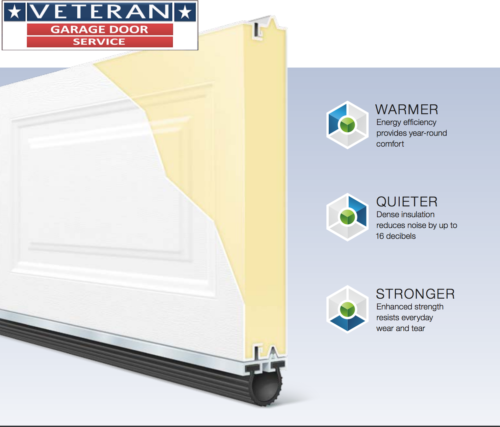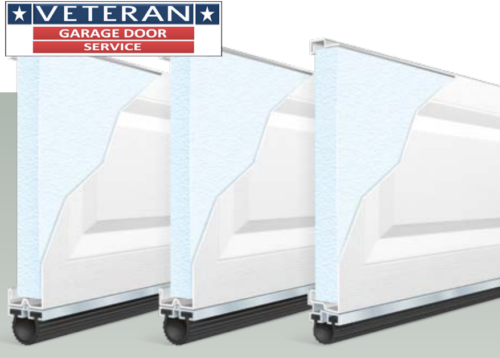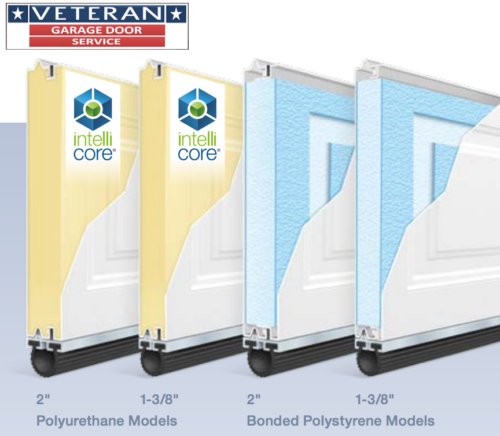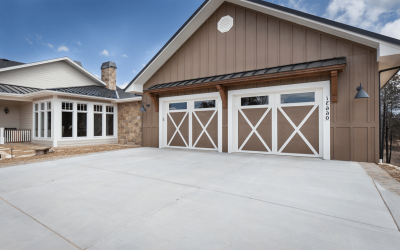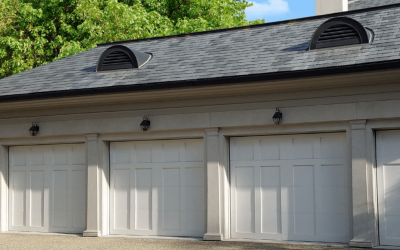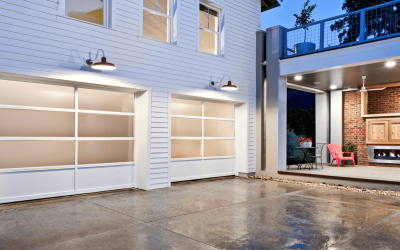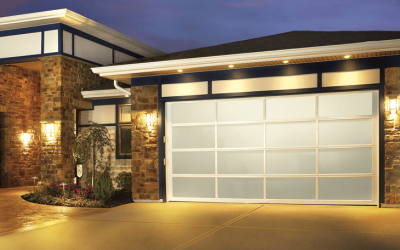We get asked about the R-Value of garage door pretty often and the answer is not always simple. Determining the R-Value of the insulating material is simple but it is only part of the answer. To get started it is important to understand what R-Value is. R-Value is a rating of a material’s ability to resist heat transfer. This is an important factor to consider, but you will also want to look at the weather seal on the bottom of the garage door and the vinyl trim around the door opening as any gaps will allow air flow and heat transfer that the R-Value of the garage door cannot control.

If you are considering adding insulation to an uninsulated garage door, you first need to determine what type of insulation you are going to add to the garage door. If you choose the fiberglass type batting insulation you can expect an R-Value of 3.1-3.4. This type of insulation on garage doors can be problematic as it has to be some how attached to the garage door with adhesive and since it is batting style it will not fit tightly and can fall out and even interfere with the function of the garage door.
If you choose to use polystyrene board (styrofoam board) the R-Value you can expect is 5-6. Polystyrene board can be cut to fit and with a little adhesive will stay in place fairly well. Remember however, you likely will not get an exact fit leaving areas of the garage door uninsulated. For DIYers this is probably the best way to insulate your uninsulated garage door. Polystyrene board is pretty easy to work with and to cut making it a good choice for the homeowner.
I have been to homes where the homeowner has used polyurethane spray insulation on their garage door. While polyurethane spray provides a R-Value of 12-18, it is easy to make a mistake and over spray the garage door. Polyurethane spray will ruin the rollers and hinges if it is sprayed on them. The polyurethane spray also makes the door very heavy and if the door is not constructed of heavy gauge steel, the extra weight of the insulation can cause the door to fail prematurely. I do not recommend the use of polyurethane spray insulation for garage doors by a DIYer.
It is also important to remember if you are adding polystyrene board or spray polyurethane foam to your garage door, you are adding weight to the garage door. The added weight will make the old spring/counterbalance system ineffective at lifting your garage door and you will need to replace the spring(s) with stronger springs to account for the weight you just added with the insulation. You will need to know the total weight of the garage door after the insulation is added to determine the proper spring(s) needed.
In many cases it is better and more cost effective to replace the garage door rather than trying to add insulation to an existing garage door. Factory insulation will provide for a more uniform and complete insulation install and thus provide for a better R-Value rating.
I think it is important to restate the value of the weather seal around the garage door. This seal will help create a barrier from the heat and cold and is much cheaper and easier to install than insulation. The R-Value of the insulation along with maintaining a tight seal around the door will help with the overall efficiency of your home. Your garage door is probably the largest single opening in your home, so I see the importance of creating a heat and cold barrier for your home.
Check with a local garage door company for price and products available in your area.




